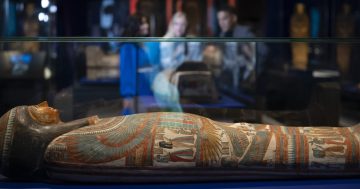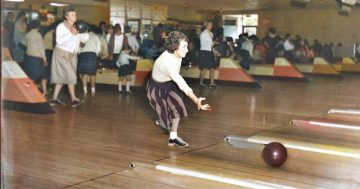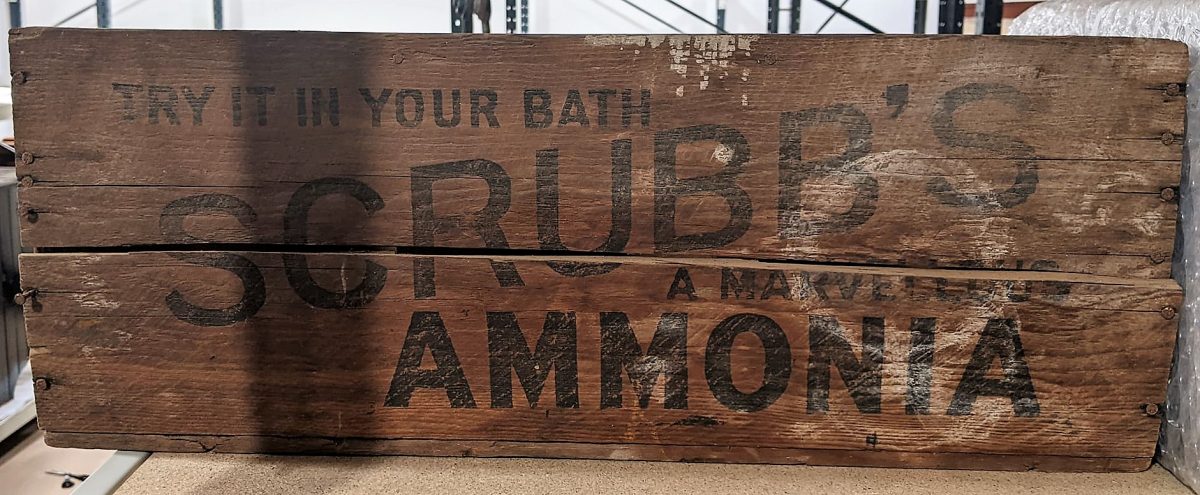
A vintage Scrubb’s Ammonia crate. Photo: Museum of the Riverina.
Another beautiful find from the Museum of the Riverina‘s storage area, this beautiful old crate originally held bottles of Scrubb’s Ammonia, dating to the first half of the 20th century.
According to advertisements, Scrubb’s Ammonia “Lightens All Housework”. It removed all household dirt, was invaluable for washing silk stockings and halved the labour of washing up.
Ammonia remains a common household cleaning product, but these days is treated carefully as it can irritate and burn the skin, mouth, throat, lungs, and eyes and high levels can damage the lungs or even cause death.
But back in the day, it was spruiked as not just a clean-all, but a kind of miracle cure-all.
In addition to its use in household cleaning, and removing stains and grease spots in the laundry, Scrubb’s suggested that it could be used undiluted to relieve ant and other insect bites, stings, and unbroken chilblains.
It could – they claimed – also be gently inhaled to relieve faintness, and rubbed gently onto the skin to relieve bruises, sprains, and applied as an antiseptic.
But what was the meaning of Scrubb’s main marketing slogan- “TRY IT IN YOUR BATH”?
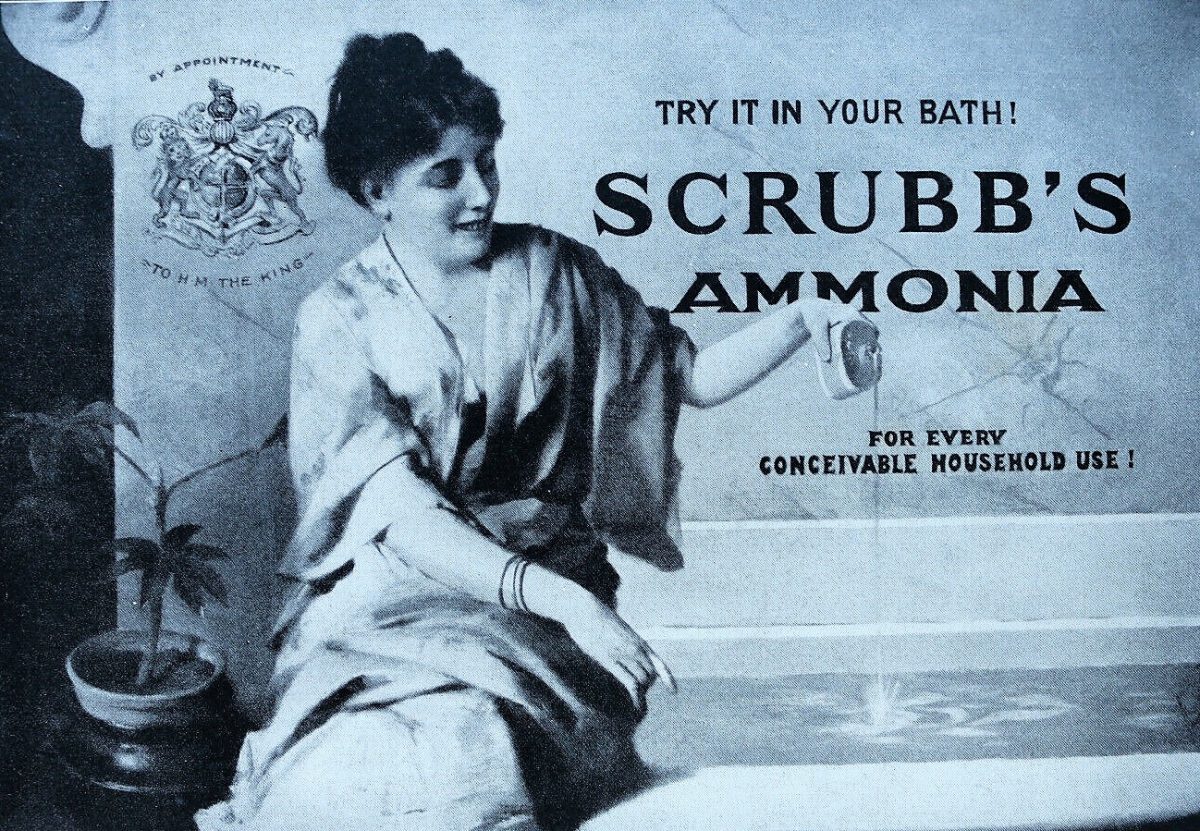
Try it in your bath! Photo: Supplied.
Did the company mean that it should be used to clean your bathtub? Or should some of the product be bathed in?
Apparently (and perhaps alarmingly) it was the latter!
Ammonia was thought to be beneficial as a foot soak and also “refreshing as a Turkish bath” and “splendid cleansing preparation for the hair”.
“Pour a little into your bath and – what a difference!” read one advertisement for Scrubb’s Perfumed Ammonia.
“Ordinary water becomes soothingly soft and subtly scented – the bath becomes an exhilarating and refreshing treat such as you have never known before. The new Scrubb’s Perfumed Ammonia will surprise and delight you.”
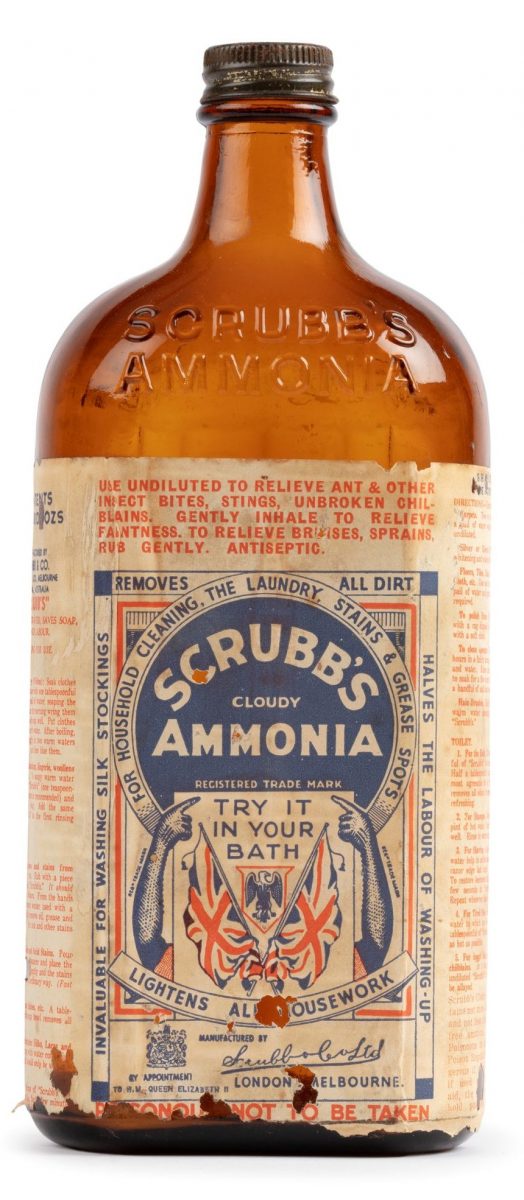
Scrubbs Ammonia bottle. Photo: Museum of the Riverina.
Scrubb’s seemed to be particularly popular in France in the early 20th century, and even boasted a British royal warrant of appointment, having been given the seal of approval by King George V.
Scrubb’s was stocked by grocers and chemists, and in 1907 (in Australia) one bottle cost one shilling. This was enough for six to 10 baths.
Did you ever use Scrubb’s in your home?







